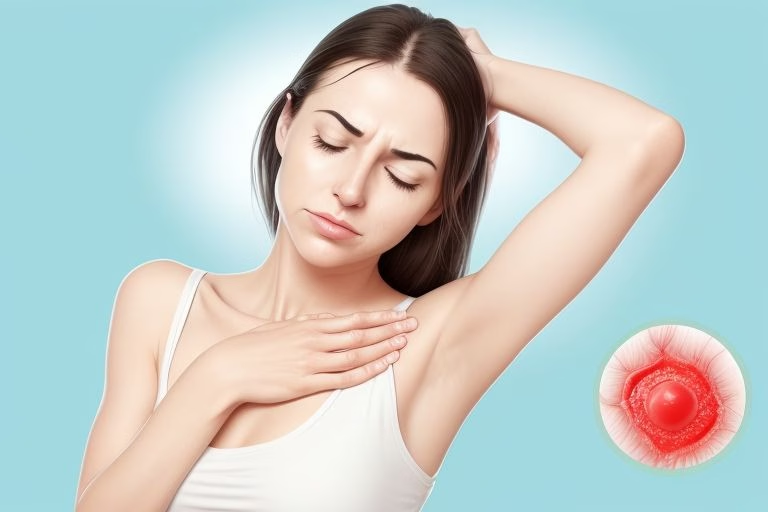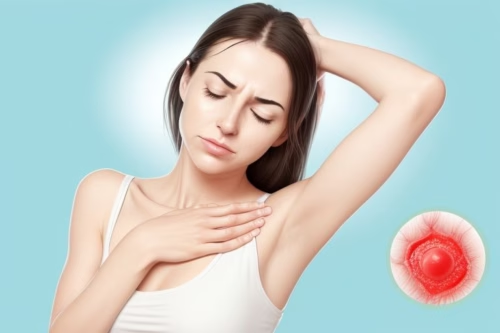
Dealing with a Herpes Rash on Your Arm? Here’s What You Need to Know
A herpes rash on your arm can be uncomfortable, painful, and concerning. Whether it’s the result of herpes simplex virus (HSV) or another related infection, you likely want relief fast. The good news is, there are effective and natural treatments that can help soothe your skin, promote healing, and prevent further outbreaks.

In this ultimate guide, we’ll explore the 7 proven ways to treat a herpes rash on your arm, offering you expert insights, actionable tips, and real-life examples. Whether you’re dealing with an initial outbreak or recurring flare-ups, these strategies are designed to give you fast relief and help restore your skin to its natural, healthy state.
What Is a Herpes Rash on the Arm?
A herpes rash on the arm occurs when the herpes virus affects the skin on your arms, causing redness, blisters, and itching. It can appear as a single sore or in clusters, often accompanied by a burning or tingling sensation. The rash usually appears after the virus becomes activated, typically due to factors like stress, illness, or a weakened immune system.
Understanding the type of herpes infection is crucial for effective treatment. Herpes is typically classified into two types:
- Herpes Simplex Virus Type 1 (HSV-1): Often responsible for cold sores around the mouth but can also cause rashes on the arms.
- Herpes Simplex Virus Type 2 (HSV-2): Primarily linked to genital herpes but can also affect other body parts.
By recognizing the symptoms early, you can manage outbreaks more effectively and avoid spreading the virus.
7 Proven Ways to Treat a Herpes Rash on Your Arm
1. Antiviral Medications: The Fastest Way to Speed Up Healing
When it comes to treating a herpes rash on your arm, antiviral medications are often the first line of defense. These medications help to reduce the severity and duration of the outbreak by targeting the herpes virus.
- Acyclovir: This oral medication is commonly prescribed for managing herpes outbreaks and can significantly speed up the healing process.
- Valacyclovir: Another potent antiviral, valacyclovir is effective for treating both HSV-1 and HSV-2 infections.
- Famciclovir: This is another antiviral that works similarly to acyclovir, reducing symptoms and viral replication.
2. Over-the-Counter Creams for Pain and Itching
For immediate relief, consider applying over-the-counter creams designed for treating herpes rashes. These topical creams can soothe itching and reduce inflammation.
- Docosanol: A widely available treatment that helps to shorten the duration of an outbreak when applied early.
- Hydrocortisone cream: It reduces redness and swelling, making it helpful for easing the irritation caused by herpes rashes.
3. Natural Remedies for Herpes Rash on Arm
If you prefer a natural approach, several home remedies can help alleviate symptoms of a herpes rash. Here are some options that have been proven to provide relief:
- Aloe Vera Gel: Known for its soothing properties, aloe vera can help cool the rash and reduce inflammation. Simply apply the gel to the affected area several times a day.
- Tea Tree Oil: With its natural antiviral properties, tea tree oil can help reduce the spread of the virus. Dilute it with a carrier oil before applying it to your skin.
- Lemon Balm: This herb has antiviral properties that may help reduce healing time. Apply lemon balm ointment directly to the rash.
4. Keep the Area Clean and Dry
Proper hygiene is essential when managing a herpes rash. Keep the affected area clean and dry to avoid further irritation or infection.
- Use gentle soap and lukewarm water to wash the rash area.
- Pat the skin dry with a clean towel instead of rubbing to avoid irritation.
- Avoid tight clothing or excessive sweating in the affected area.
5. Cold Compresses for Quick Relief
A cold compress can help to numb the area, reduce swelling, and ease the itching associated with a herpes rash. Here’s how to use it:
- Wrap some ice cubes in a clean cloth or use a cold pack.
- Apply it to the rash for 15-20 minutes at a time.
- Repeat this process several times a day for quick relief.
6. Boost Your Immune System for Faster Healing
A strong immune system plays a vital role in keeping herpes outbreaks under control. Here are some steps to support your immune health:
- Vitamin C: Helps boost your immune system and supports skin healing.
- Zinc Supplements: Zinc can accelerate the healing process and prevent further outbreaks.
- Probiotics: Strengthen your immune system by maintaining a healthy balance of gut bacteria.
7. Stress Management to Prevent Recurrence
Since stress is one of the most common triggers for herpes outbreaks, finding ways to manage your stress is crucial for long-term relief.
- Mindfulness meditation: Practice deep breathing exercises to calm your mind.
- Exercise regularly: Physical activity helps to relieve tension and promote overall health.
- Adequate sleep: Make sure you’re getting at least 7-8 hours of sleep to help your body heal.
Frequently Asked Questions (FAQs)
1. Can I get herpes on my arm from someone else? Yes, herpes is contagious, and the virus can spread through direct skin-to-skin contact. If someone has an active herpes outbreak, avoid close contact with the affected area to prevent transmission.
2. How long does a herpes rash last on the arm? A herpes rash typically lasts between 7 to 10 days. The severity and duration depend on factors like the type of herpes virus and your immune response.
3. Is there a cure for herpes? While there is no cure for herpes, antiviral treatments can help manage outbreaks, reduce symptoms, and lower the risk of transmission.
4. When should I see a doctor for a herpes rash? If the rash is severe, if you experience complications, or if it’s your first outbreak, it’s important to see a healthcare professional for proper treatment and guidance.
Conclusion: Take Control of Your Herpes Rash Today
A herpes rash on your arm can be distressing, but with the right treatment plan, you can manage outbreaks effectively and promote healing. From antiviral medications to natural remedies, there are several ways to get fast relief and prevent future flare-ups. By following the tips in this guide, you’ll be on your way to healthier, rash-free skin in no time!
Don’t let a herpes rash control your life. Start treating your symptoms today with the methods outlined above, and enjoy fast relief and long-lasting results.
Want more tips for managing your skin health? Subscribe to our newsletter for expert advice on skincare, wellness, and more!



